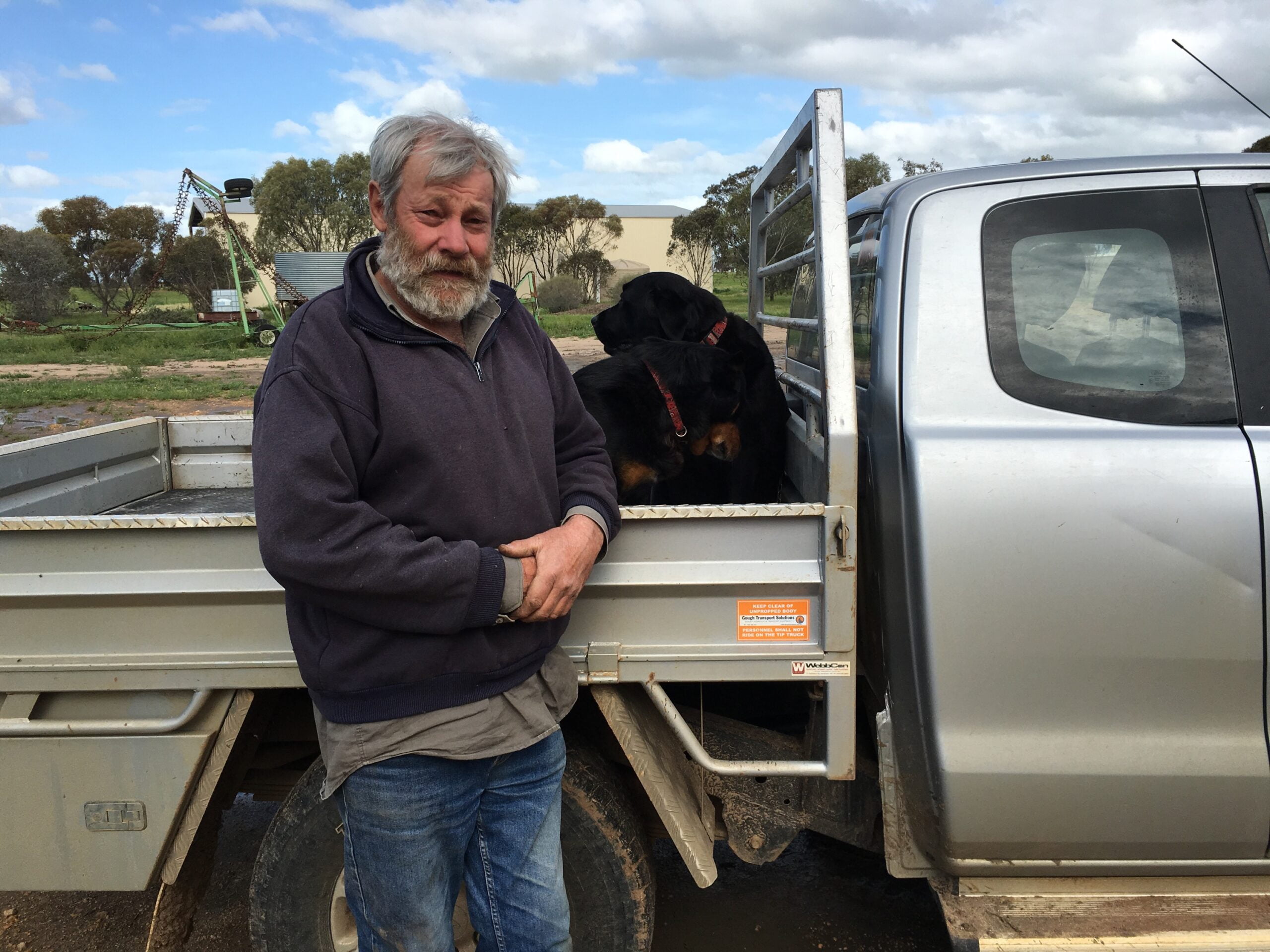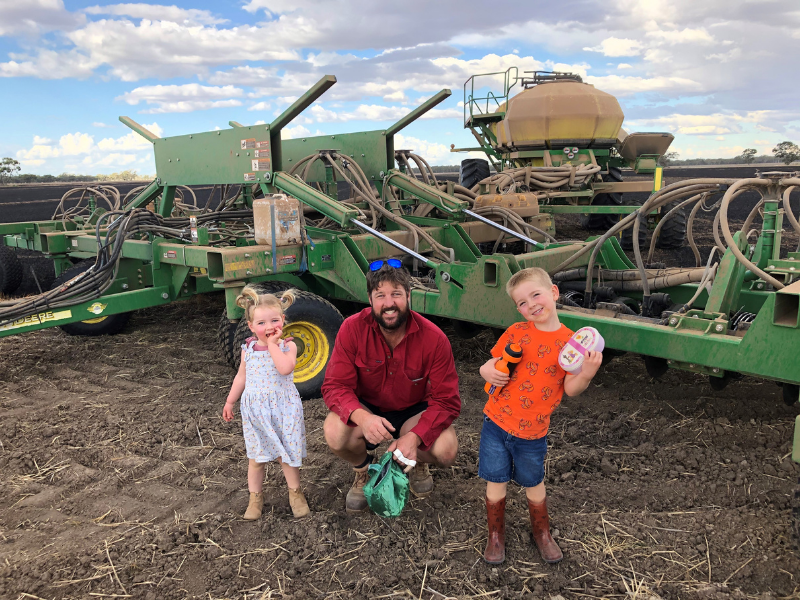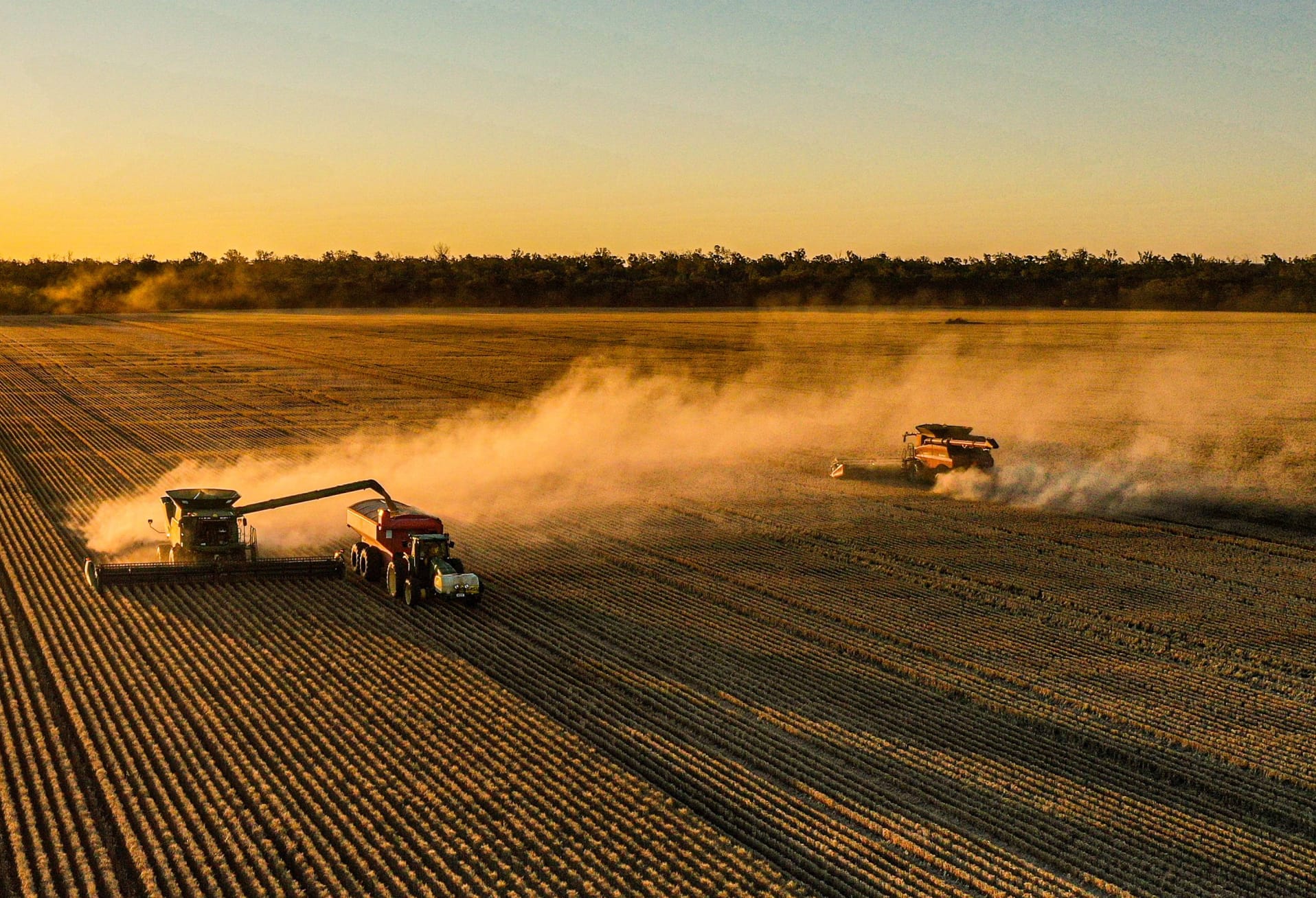Peter Martin lives at ‘Pinedale’ in the Brim East district and farms with his wife Bronwyn and nephew Simon.
Enterprise Mix: Crops – wheat, barley, canola, lentils, vetch and oaten hay; Livestock – merino ewes producing fat lambs, Angus breeding cows with a Limosin bull.
Summarise the season so far? How much growing season rainfall (GSR) have you had?
The season is as good as it gets. Until the end of August we had only had 160mm growing season rainfall and we were looking for some more rain. Since then we’ve had 161mm in September. There is waterlogging in isolated, low lying patches and some of the lentils will be worst affected.
With the crops looking so good, what have you been focussing on to protect your yield potential?
We can’t get out onto our paddocks right now (interview was conducted on 5 October 2016). All our cereals and lentils have had a fungicide application and the lentils will get another one, once paddocks dry out.
Harvest is shaping up to be a big one, what are your predictions and how do you make management decisions leading into harvest?
Everyone is looking forward to harvest. I am expecting between 3 to 4 t/ha yield in the wheat and barley but it’s hard to tell.
Hay will be cut later in the season than normal (due to the rain) and we might cut vetch hay. Management decisions about what to cut and when will be made on the run but we are in as good a position as we can be so you just deal with it, still keeping an eye on the end result.
For harvest, I join forces with one of my neighbours. We’ve always helped each other out to finish harvest if one finishes before the other but recently, we decided to pool our resources and ‘start at the start’ together.
Financially, I don’t think there’s much difference (to doing it on our own) but working together, we work harder because you keep each other going. There are more people to help and we finish early. It’s also fun because we all get along. Everyone has a main role but will do other jobs if it’s needed.
We support each other so we can meet other commitments at this time of year such as attending community meetings or gatherings.
Regularly, we will all stop and have tea in the paddock on the tail gates of our utes. We use this as an opportunity to get a feeling for the general theme of the day and hear all the day’s issues and stories. Everyone switches off and relaxes. It’s a good working environment.
What have you learned from this season?
More so reinforced than learned to be on time – not so much with sowing this year (because it was dry) but especially with weed control and fungicide applications. Normally with spreading urea you only get two or three opportunities in but this year, you had to just go. You couldn’t always “catch up next month” because paddocks risked becoming too wet to access.
What do you do for ‘down time’ away from farming?
I am involved with community organisations (at Brim) and Brownyn and I are keen gardeners. We also do environmental work on our farm by planting trees. This year we’ve planted lots of replacements in existing plantations.
What is some of the best farming advice you’ve been given?
Probably the best advice has come from my father and Peter Ridge (former agricultural consultant) who would say: “If you do something, do it well.” With attention to detail, you could turn 80 per cent into 100 per cent.
Also, “if you don’t have a go, you’ll never know.” Once we only grew wheat and barley and only had livestock, then we tried canola, lentils and hay. Don’t change things drastically, and if it doesn’t work, just move on.
And importantly, “have a positive attitude.” When you have a good year, you’ve got to go for it. Do the best you can within your constraints.
To hear more about Peter’s cropping program, listen to the podcast below or go to the ‘BCG in Focus’ podcast channel at https://soundcloud.com/bcg-birchip.












